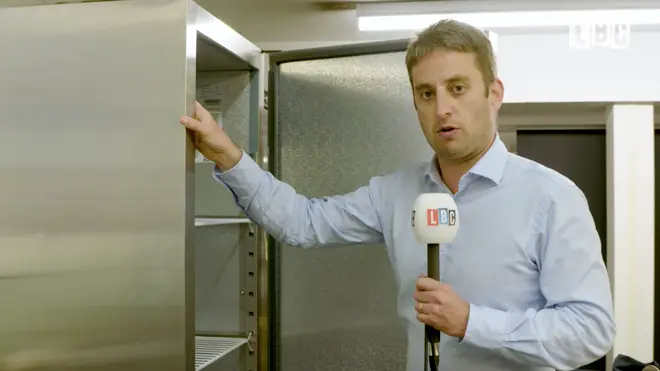
Henry Riley 7pm - 10pm
16 October 2019, 15:33 | Updated: 28 October 2019, 15:53
How does the customs plan in Boris Johnson's Brexit proposal work? Theo Usherwood explains it using the analogy of fridges.
The Prime Minister is hoping to secure a deal that would mean a customs check in the Irish sea. But how will that actually work and what are the problems with it?
LBC's Political Editor Theo Usherwood explains...
Boris Johnson's Brexit plan can be summed up in a tale of two fridges.
We have fridge one, made in Beijing and imported into Belfast. The cost of the fridge to the importer is £1,000. Let's say the European Union has a tariff on white goods of 10%, so to bring it into Belfast, it will cost the importer £1,100.
But then let's say Liz Truss, the International Trade Secretary, negotiates a trade deal with China on white goods that all imports have a tariff of 5%. If the importer can prove that this same fridge is actually sold in Belfast and doesn't cross the border into Dublin or Madrid or Paris, then they'll be paid a 5% rebate - £50 back.

But there's a problem. Fridge two may be built in Belfast, but if the importer puts in shelves that were made in China and transports it across the border into Dublin, Frankfurt, Madrid, they will have to separate the cost of the shelves from the total cost of the fridge if they want to claim that rebate.
That's where this becomes so complicated.
Because what the European Union is scared of - what they don't want to happen - is for parts of goods to be smuggled into the EU through Northern Ireland without the correct tariff being paid.
But if Northern Ireland importers can't claim a rebate, then what's the point? They're not getting the same advantages as importers in mainland Great Britain.
And that's the problem for the DUP.